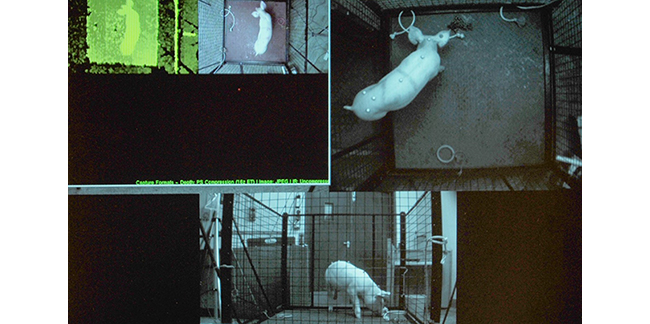Mathematical and computational approaches in animal welfare (MACAAW)
 Image credit: Poppy Statham
Image credit: Poppy Statham
Increasing computational power, the development of machine learning and AI algorithms, and the availability of ‘big data’ provide new opportunities for employing mathematical and computational approaches in animal welfare science.
We use these approaches in a number of animal welfare contexts including epidemiological studies of risk factors for welfare problems, computational modelling to reveal processes underlying behaviour, affect and decision-making, computer vision to develop automated methods for welfare assessment, and implementation of deep-learning algorithms to detect data patterns predictive of poor welfare and disease.